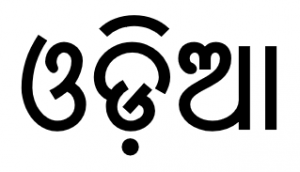Difference between revisions of "Language/Odia/Grammar/Give-your-Opinion"
m (Quick edit) |
m (Quick edit) |
||
| Line 97: | Line 97: | ||
}} | }} | ||
<hr>➡ If you have any questions, please ask them in the comments section below.<br>➡ Feel free to edit this wiki page if you think it can be improved. 😎 | <hr>➡ If you have any questions, please ask them in the comments section below.<br>➡ Feel free to edit this wiki page if you think it can be improved. 😎 | ||
==Related Lessons== | |||
* [[Language/Odia/Grammar/Plurals|Plurals]] | |||
* [[Language/Odia/Grammar/Negation|Negation]] | |||
* [[Language/Odia/Grammar/Conditional-Mood|Conditional Mood]] | |||
* [[Language/Odia/Grammar/Adjectives|Adjectives]] | |||
* [[Language/Odia/Grammar/Pronouns|Pronouns]] | |||
* [[Language/Odia/Grammar/Questions|Questions]] | |||
{{Odia-Page-Bottom}} | {{Odia-Page-Bottom}} | ||
Revision as of 00:03, 1 March 2023
Hi Odia learners! 😊
In this lesson, we will learn how to give your opinion in Odia. Giving your opinion is an important part of any conversation and it is essential to be able to express yourself in a clear and concise way. We will look at the different ways to give your opinion in Odia, as well as some useful phrases and expressions. Let's get started!
Expressing Agreement
When you agree with someone, you can use the following phrases:
| Odia | Pronunciation | English Translation |
|---|---|---|
| ହୁଏ | huē | Yes |
| ହୁଏ, ଠିକ | huē, ṭhika | Yes, that's right |
| ହୁଏ, ସତେ | huē, satē | Yes, absolutely |
| ହୁଏ, ଅତୁଲା | huē, atulā | Yes, definitely |
| ହୁଏ, ନିଶ୍ଚିତ | huē, niścit | Yes, certainly |
You can also use the phrase "ଆମେ ସମ୍ମତ ହୋଇଛି" (āmē sammat hō'ichhi) which means "I agree".
Expressing Disagreement
When you disagree with someone, you can use the following phrases:
| Odia | Pronunciation | English Translation |
|---|---|---|
| ନା | nā | No |
| ନା, ଠିକ ନା | nā, ṭhika nā | No, that's not right |
| ନା, ସତେ ନା | nā, satē nā | No, not really |
| ନା, ଅତୁଲା ନା | nā, atulā nā | No, not necessarily |
| ନା, ନିଶ୍ଚିତ ନା | nā, niścit nā | No, not necessarily |
You can also use the phrase "ଆମେ ସମ୍ମତ ନାହିଁ" (āmē sammat nāhī̃) which means "I don't agree".
Expressing Uncertainty
When you are uncertain about something, you can use the following phrases:
| Odia | Pronunciation | English Translation |
|---|---|---|
| ଅଜଣା | ajaṇā | I don't know |
| ଅଜଣା, ଠିକ ନା | ajaṇā, ṭhika nā | I'm not sure, that's not right |
| ଅଜଣା, ସତେ ନା | ajaṇā, satē nā | I'm not sure, not really |
| ଅଜଣା, ଅତୁଲା ନା | ajaṇā, atulā nā | I'm not sure, not necessarily |
| ଅଜଣା, ନିଶ୍ଚିତ ନା | ajaṇā, niścit nā | I'm not sure, not necessarily |
You can also use the phrase "ଆମେ ଅଜଣା" (āmē ajaṇā) which means "I don't know".
Examples
Here are some examples of how to give your opinion in Odia:
| Odia | English |
|---|---|
| ଆମେ ସମ୍ମତ ହୋଇଛି | I agree |
| ଆମେ ସମ୍ମତ ନାହିଁ | I don't agree |
| ଆମେ ଅଜଣା | I don't know |
| ହୁଏ, ଠିକ | Yes, that's right |
| ନା, ଅତୁଲା ନା | No, not necessarily |
Quiz
Test your knowledge of giving your opinion in Odia with this quiz:
- How do you say "Yes, that's right" in Odia?
- How do you say "I don't agree" in Odia?
- How do you say "I'm not sure, not necessarily" in Odia?
- How do you say "I don't know" in Odia?
➡ If you have any questions, please ask them in the comments section below.
➡ Feel free to edit this wiki page if you think it can be improved. 😎
Related Lessons
